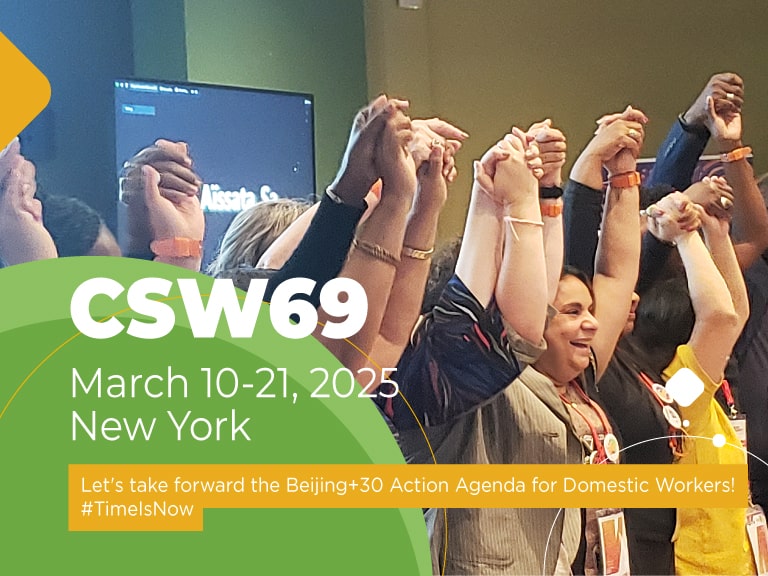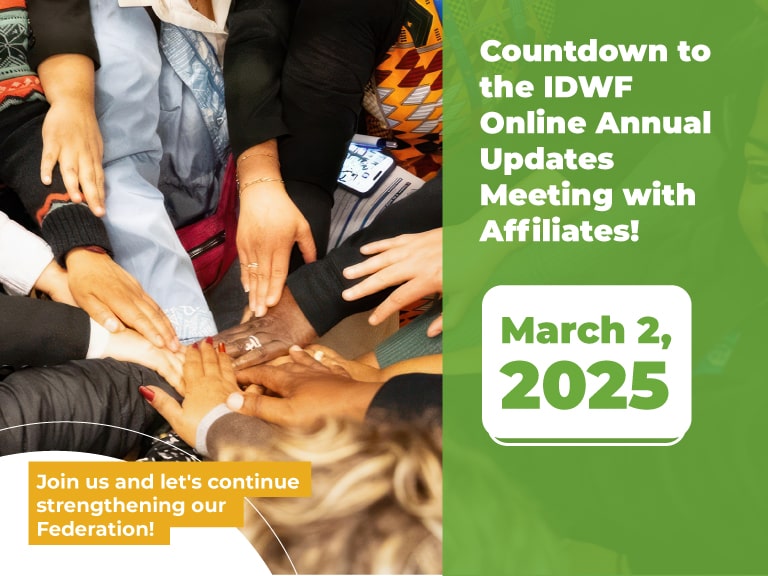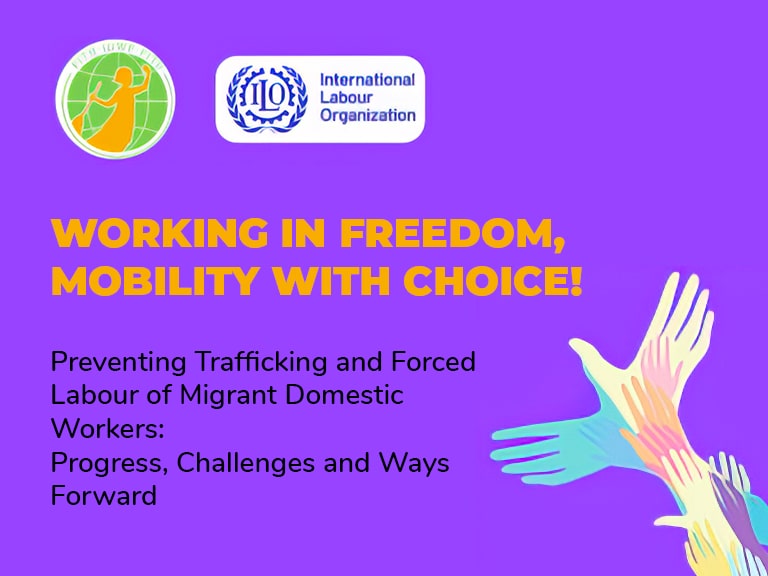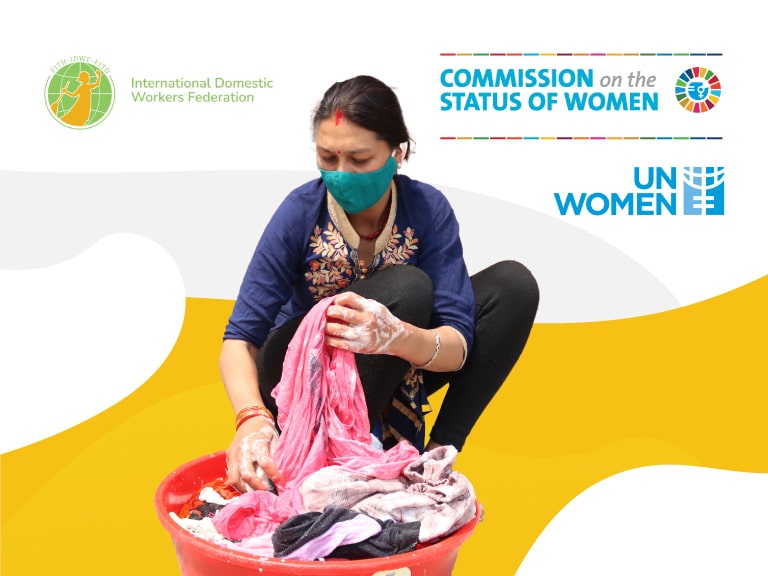113th International Labour Conference
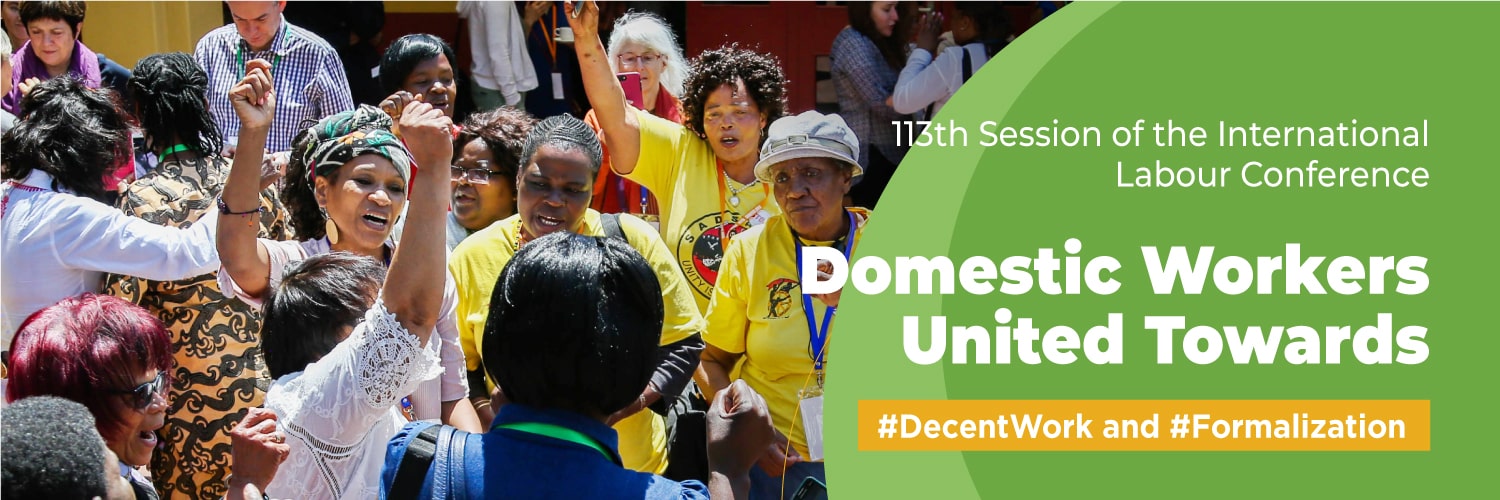
IDWF’s Parallel Event at the ILC 2025
FROM UNION STRENGTHENING TO POLICY TO PRACTICE: Theory of Change to Achieve Decent work for Domestic Workers in the Era of Care
Save the date and join our parallel event for the launch of IDWF’s Theory of Change Report at the ILO headquarters in Geneva. Together with representatives from the Government of Uruguay, the ILO, and trade unions, we’ll reflect on our movement’s struggles and victories and address the path toward decent work for domestic workers in the era of care.
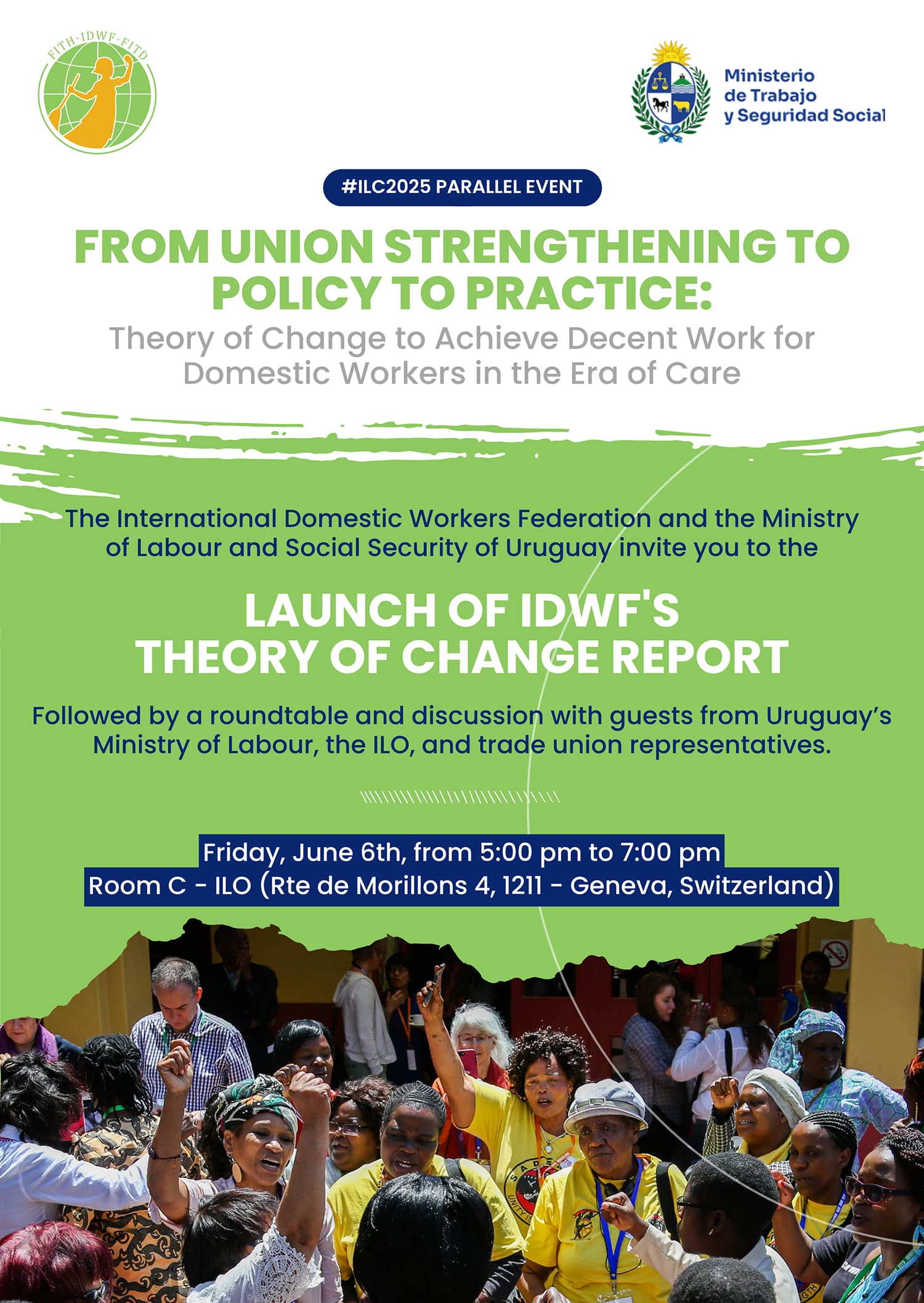
Raising Our Voices to Shape the Future of Domestic Work
At the 113th session of the International Labour Conference, government, employer, and worker delegates from the ILO’s 187 Member States will address crucial matters related to the future of work, such as possible new international standards on the protection of workers against biological hazards in the working environment, decent work in the platform economy, and innovative approaches to promoting transitions toward formality.
From June 2 to 13, we’ll be at the ILO Headquarters in Geneva to bring the voices, demands, and power of domestic workers to the largest international gathering in the world of work. Our delegation, representing all regions, will play an active role in two key discussions: the general discussion on innovative approaches to tackling informality and promoting transitions toward formality to promote decent work, and the standard-setting discussion on decent work in the platform economy.
Tackling Informality and Promoting Transitions Towards Formality to Promote Decent Work
Paid domestic work is essential to sustaining life and keeping the economy running. However, the widespread misperception that it is not “real work” — together with the historic discrimination faced by domestic workers — has led to their exclusion from labor and social protections, legal gaps that hinder effective implementation and enforcement, and high levels of non-compliance with existing legislation. As a result, domestic workers continue to endure alarming rates of informality and decent work deficits:
- 8 in 10 domestic workers are in informal employment, with no access to basic labor protections, including social security.
- The monthly income of domestic workers in informal employment. amounts to only 45% of that of other workers.
- 36.1% of domestic workers are excluded from legal protection.
- 50% of domestic workers are not legally entitled to social security.
- 1 in 3 domestic workers in informal employment is covered by labor and social security laws, but these laws are not complied with due to gaps in implementation and enforcement.
Migrant domestic workers are the primary providers of care in high-income countries. Yet they often face the worst working conditions — especially those with irregular migration status — due to restrictive temporary migration schemes and policies that structurally suppress their rights. They are frequently trapped in situations of exploitation, abuse, and violence — even forced labor.
ILO Convention 189 and Recommendation 201 recognize domestic work as paid work, performed within a formal employment relationship (with an employer) and in an economic unit (the household). Therefore, domestic workers are entitled to the same rights as all other workers.
Informality fuels poverty and inequality. Tackling it requires innovative approaches and political will. Based on the premise that our voice and representation are essential to shaping policies affecting domestic workers, we are bringing our demands and proposals to the International Labour Conference. Because decent work for domestic workers can’t wait!
Decent Work in the Platform Economy
The withdrawal of States from the provision of care services — in favor of outsourcing, privatization, and market-driven models — has fueled the rise of digital labor platforms that devalue care work by turning care recipients into consumers and caregivers into commodities. These platforms expose workers to new forms of labor precarization, as their working conditions are determined by algorithms. As a result, domestic workers often face low pay, poor working conditions, lack of social protection, and exclusion from labor laws. In this business model, workers shoulder all the risks, while platforms make massive profits and users avoid employer responsibilities — with no one held accountable.
Domestic workers who perform their work through digital platforms are not “platform workers” — they are still part of the domestic work sector and must be classified as such. They should be protected under the umbrella of ILO Convention 189 (basic labor protections), fundamental rights at work (freedom of association, collective bargaining, non-discrimination, and the elimination of forced and child labor), and represented by domestic workers’ organizations. If left unregulated, the platform economy will continue to deepen informality, discrimination, and power imbalances in domestic work — instead of offering fair income opportunities.
That’s why, at the International Labour Conference, we’re pushing for a binding ILO Convention, supported by a Recommendation, to regulate the platform economy and ensure decent work for those who build its value. If we don’t act now, millions of domestic workers will be left without rights.
ILC 2025 Key Resources
WIEGO Network’s Global Position Paper on Formalization: Collective Action for Risk Reduction and Decent Work : https://www.wiego.org/advocacy-worker-education-resources/global-position-paper-on-formalization-2025/
ITUC Campaign “Time to Deliver Rights for All Platform Workers”: https://www.ituc-csi.org/time-to-deliver-rights-for-all-platform-workers
ILC 2025 Agenda: https://www.ilo.org/resource/conference-paper/ilc/113/agenda-113th-session-international-labour-conference
ILC.113/Report VI – Innovative approaches to addressing informality and promoting the transition to formality for decent work: https://www.ilo.org/resource/conference-paper/ilc/113/innovative-approaches-addressing-informality-and-promoting-transition
ILO Report – Innovative Approaches Taken by Workers’ Organizations to Drive Formalization: https://www.ilo.org/publications/innovative-approaches-taken-workers%E2%80%99-organizations-drive-formalization
ILC.113/Report V(2) – Realizing decent work in the platform economy: https://www.ilo.org/resource/conference-paper/ilc/113/realizing-decent-work-platform-economy-0
Transition from the informal to the formal economy – ILO Theory of change: https://www.ilo.org/resource/brief/transition-informal-formal-economy-theory-change
IDWF at the International Labour Conference Over the Past Ten Years
learn more about previous strategies that have led to significant victories for domestic workers at the world’s largest international conference on the world of work..



